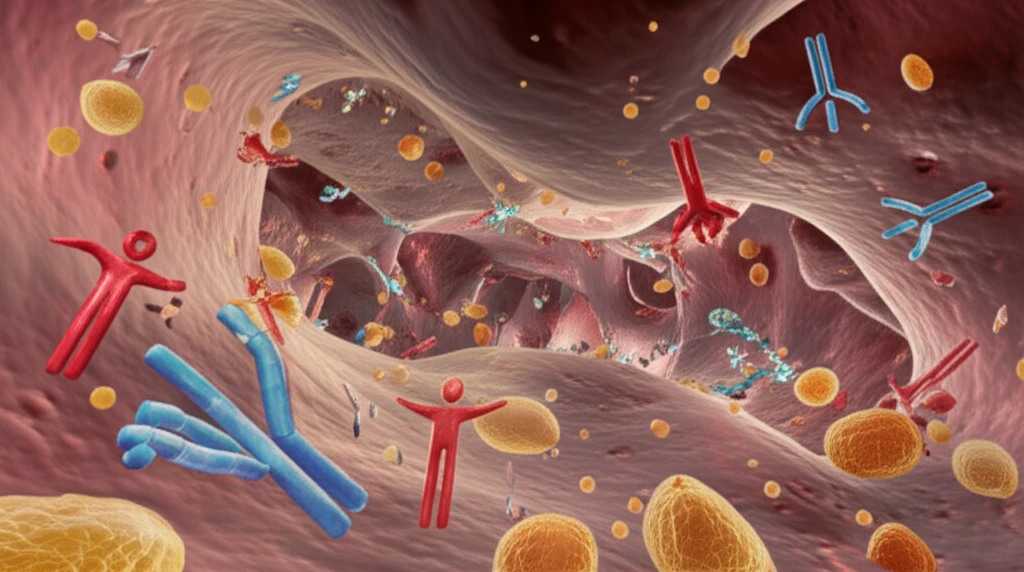
Decoding ASCA: Can This Antibody Really Tell Crohn's From Celiac?
"Unraveling the complexities of ASCA (Anti-Saccharomyces cerevisiae antibodies) in diagnosing Crohn's and Celiac diseases."
Crohn's disease (CD) and celiac disease (CeD) are both chronic inflammatory conditions that affect the digestive system. While they have distinct causes—Crohn's involving a complex interplay of genetic and environmental factors leading to chronic intestinal inflammation, and celiac disease triggered by an autoimmune reaction to gluten—their symptoms can sometimes overlap, making accurate diagnosis a challenge.
In the quest for reliable diagnostic tools, anti-Saccharomyces cerevisiae antibodies (ASCA) have emerged as a serological marker primarily associated with Crohn's disease. ASCA are antibodies directed against the cell wall of the yeast Saccharomyces cerevisiae, commonly known as baker's or brewer's yeast. Studies have shown that ASCA are present in a significant proportion of Crohn's patients, leading to their incorporation into diagnostic algorithms.
However, the specificity of ASCA for Crohn's disease has been questioned, particularly with the increasing recognition of its presence in other conditions, including celiac disease. This article explores the complexities surrounding ASCA, examining its utility and limitations in differentiating Crohn's disease from celiac disease based on recent research. We'll also dive into how increased intestinal permeability affects autoantibody production and the implications for diagnosis.
ASCA and Inflammatory Bowel Diseases: What Does the Research Say?

A study published in Arquivos de Gastroenterologia aimed to evaluate the frequency of ASCA in patients with Crohn's disease and celiac disease, comparing these findings with those of healthy individuals. The researchers sought to determine whether ASCA could reliably differentiate between these two conditions.
- Crohn's Disease (CD): 36 patients diagnosed with Crohn's disease.
- Celiac Disease at Diagnosis (CeD I): 34 patients newly diagnosed with celiac disease.
- Celiac Disease on Gluten-Free Diet (CeD II): 13 patients with celiac disease adhering to a strict gluten-free diet (GFD).
- Celiac Disease with Diet Transgressions (CeD III): 5 patients with celiac disease who admitted to occasional gluten intake.
- Control Group: 57 healthy individuals with no known gastrointestinal disorders.
The Takeaway: ASCA's Role in Understanding Gut Inflammation
The study concluded that the presence of ASCA in patients with celiac disease suggests that ASCA is not a specific marker for Crohn's disease. Instead, ASCA positivity may be associated with general inflammation of the small intestine. Elevated levels of ASCA could be due to genetic factors and increased intestinal permeability, which allows more antigens to cross the intestinal barrier, triggering an immune response.
